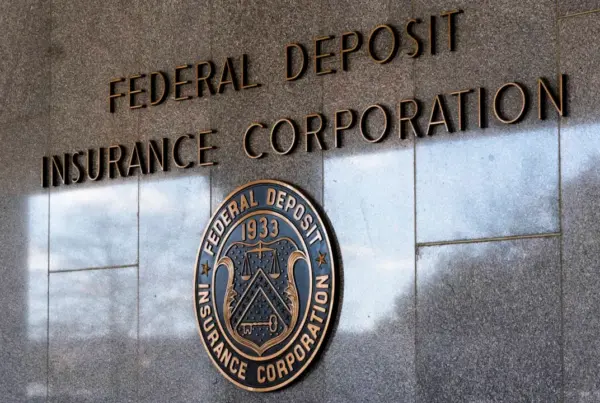I. Introduction
On January 17, 2025, the Federal Deposit Insurance Corporation (FDIC) issued a significant announcement detailing the upcoming retirement of Doreen R. Eberley, the esteemed Director of the Division of Risk Management Supervision (RMS). Effective March 29, 2025, Ms. Eberley will conclude her remarkable 38-year career at the FDIC, leaving behind a legacy marked by resilience, foresight, and innovation in financial supervision. This memorandum delves into the intricacies of the announcement, examining its implications for the FDIC and the broader banking ecosystem. Additionally, it provides stakeholders with a set of strategic recommendations to navigate this leadership transition seamlessly.
II. Contributions and Legacy of Doreen Eberley
Doreen Eberley’s tenure as Director of RMS has been characterized by her unwavering dedication to refining the FDIC’s supervision mechanisms in a rapidly evolving financial landscape. Her strategic focus encompassed embedding critical lessons from past financial crises into the FDIC’s supervisory framework, thereby fortifying the institution’s ability to oversee large, complex financial entities. Ms. Eberley’s initiatives have been pivotal in modernizing supervisory technology systems and equipping the examiner workforce to tackle future challenges. Her role in various capacities, including Senior Deputy Director in RMS and Regional Director, highlights her extensive contributions and leadership credentials, establishing her as a linchpin in the FDIC’s structural evolution.
III. Implications for the FDIC and the Banking Sector
The impending retirement of Ms. Eberley marks a watershed moment for the FDIC, heralding a significant leadership transition within the Division of Risk Management Supervision. As the institution braces for this change, it underscores the importance of maintaining continuity in supervisory practices, particularly in the oversight of large and complex financial institutions. The transition may also impact ongoing regulatory initiatives, necessitating a careful balance between embracing Eberley’s legacy of modernization and adapting to fresh policy directions under new leadership. Stakeholders within the banking sector must therefore adopt a proactive approach in understanding and aligning with potential shifts in supervisory focal points emanating from the FDIC.
IV. Proactive Strategic Steps for Stakeholders
To effectively navigate this leadership transition, stakeholders are advised to undertake several strategic actions:
- Monitor Leadership Changes: Maintain a vigilant watch over the appointment of Ms. Eberley’s successor and any potential shifts in supervisory strategies.
- Engage with the FDIC: Proactively engage in dialogue with the FDIC to grasp any realignment of regulatory priorities or focus areas.
- Review Internal Compliance Programs: Ensure compliance programs reflect updated FDIC expectations, aligning with best practices in anticipation of future directives.
- Support Diversity and Inclusion Initiatives: Foster diversity and inclusion within organizations, mirroring the values championed by Ms. Eberley.
- Prepare for Future Regulatory Developments: Stay informed and prepared for any regulatory transformations as the FDIC continues its modernization efforts.
V. Conclusion
The retirement of Doreen Eberley from the FDIC is a pivotal event, signaling a new era within the Division of Risk Management Supervision. Her impactful contributions have laid a robust foundation for financial oversight, underscoring the importance of vigilance and proactive engagement as stakeholders adapt to this transition. By monitoring impending leadership changes, aligning internal practices with evolving regulatory landscapes, and upholding diversity initiatives, financial institutions can ensure seamless compliance and stability in a dynamic regulatory environment. This proactive approach will be crucial in sustaining the public’s confidence in the banking system and meeting the challenges of tomorrow.


